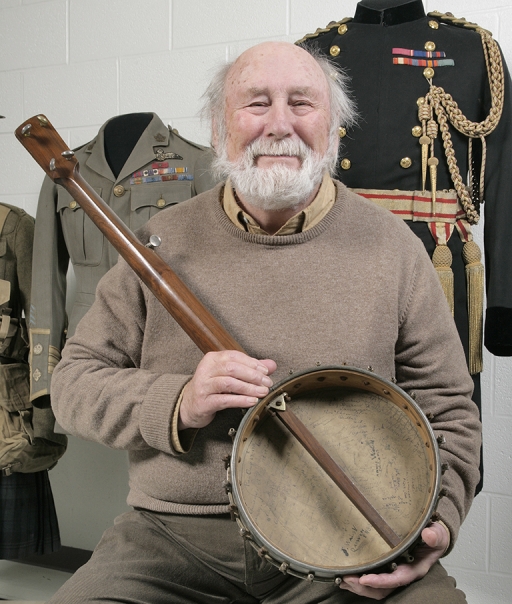A banjo signed by 28 members of the Canadian Expeditionary Force while they were serving in France in 1917 has been donated to the Canadian War Museum in Ottawa.
“The instrument represents a cross-section of Canadians who served during the First World War and reveals, through their personal stories, the camaraderie that sustained them on the battlefield and in the aftermath of the war,” said James Whitham, the museum’s Director General.
“We are pleased to add the banjo to the National Collection because it is such an unusual, fascinating and historically meaningful artefact.”
The donor is Alec Somerville, an Irish banjo player and amateur historical researcher who used to live in Canada. He found the battered old instrument for sale in England and couldn’t resist buying it when he saw it was covered in signatures and the names of Canadian towns.
Paris 1917
Noticing that the words “Paris, Aug 24th, 1917” were written twice on the reverse of the banjo head, or drum, Mr Somerville speculated that a group of Canadian soldiers had left their mark on the instrument during the First World War.
That theory inspired a quest to find out as much as possible about the banjo and the men who inscribed it with their names and hometowns. Alec Somerville, himself an armed forces veteran and retired police officer, began his inquiries by deciphering the signatures, many of which were faint and smudged.
Through his research and conversations with descendants, Mr Somerville uncovered many of the soldiers’ personal stories: where they came from and, in many cases, their fates after the war.
The men represented almost every Canadian province. About half were born in Canada, and the rest were immigrants from England, Wales, Jamaica and Belgium. One came from the Six Nations of the Grand River territory of aboriginal peoples near Brantford, Ontario. Another was the uncle of Roland Michener, who served as Governor General of Canada from 1967 to 1974
Having discovered the banjo’s significance, Mr Somerville decided it belonged in the Canadian War Museum, the country’s national museum of military history. It goes on public display from 27th January 2014.
Source: Canadian War Museum
Date of press release publication: 17th December 2013
Images courtesy of ©Canadian War Museum corporate photo collection, photo B. Kent
Posted by: Peter Alhadeff, Centenary News
